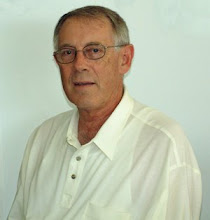One of my strongly held educational philosophies is that all instruction should be relevant to students, especially at the secondary level. Before someone gets defensive, I’m not suggesting that it isn’t, I’m simply urging that with all curriculum planning we should be asking the question. “Why should students be required to learn this? We used to get away with answers like, because it is “knowledge for knowledge’s sake” or “learning this expands one’s mind” – no more. Quite frankly, there is so much information out there today that we have to be selective in what is taught. First and foremost, our educational system should be instilling in students the insatiable desire to see learning as a continuous life time experience. Secondly, our educational system should be teaching students the core knowledge and problem solving skills they will need to do the above. I think the best way accomplish these goals is to make sure what we teach is seen as relevant to students.
In some courses it is easy: for example civics, especially during an election year like we’ve just gone through, or economics when we are facing a financial crisis as we are today. Some courses are career oriented, like carpentry or agriculture, and relevance to that career is the focus. But, other courses, most in fact, are not so easy, and it takes some serious thought, creativity, and effort to make it relevant. Schools can be somewhat isolated from the working world and some courses of study can fall into the trap of being too sterile and artificial. I think it is important that all students should be involved in often held discussions where it is made clear to them what they are expected to learn and how this knowledge relates to their lives now and in the not so distant future. With this understanding, it should help students to develop an interest or it at least makes learning the skill or knowledge tolerant since they can see what they are expected to learn and how it will impact them. If this can’t be done, maybe we shouldn’t be teaching it!
Beyond discussing relevance with students, I think an excellent way to accomplish this is to expand the school environment, making it a community environment. There should be a revolving door of community people going into the school to speak with students about how things are done in the working world. And, where appropriate, students going out in the community to see, hear, and get a feel of how things are done in the working world.
The focus should not be career selection, although students might make judgments along those lines. The focus should be on relevance to their education. One can pick any course of study to illustrate this. Using chemistry as an example, speakers could be brought in from Hospira, NCRA, McPherson Hospital, Certainteed, Chemstar, just to name a few companies that have chemists on staff that can explain to students how chemistry is an integral part of their business. Plus, other companies like water treatment, sewage treatment, oil field workers, feed companies, etc. who make extensive use of chemistry, even though they don’t have chemists on staff, could explain how knowledge of chemistry affects their business. These people could bring some real world examples and every day problems where knowledge of chemistry is necessary. We just mentioned 9 different potential speakers without even working at it. I think we could do the same with other courses of study resulting in many speakers and a lot of real world relevance.
The nice thing is that it wouldn’t cost schools much to do it. It would take a couple of full time facilitators to take requests from teachers for programs, to go out and arrange for these speakers, video tape these classroom sessions, and compile a data base of DVD’s that could be used in the future. The subject matter could be as simple and/or as advanced as needed for the education level of the course. I’m confident that business owners, managers, and employees would look foreword to working with students and teachers a few hours each school year. I stumbled across this process in the last few years of my teaching career when I started teaching economics with no curriculum and no text book. I asked a wide variety of people from the community to come in and it worked out amazingly well. They were more than willing to come and students learned more than I could have taught them about the real world of business, labor, banking, agriculture, insurance, government finance, manufacturing, sales, management, etc. Remember, these speakers are almost always passionate about their work and very knowledgeable.
It would not be an easy process to set-up. It would take some serious organizational skills. Parameters would need to be developed for guest speakers, for teachers, and for students – they need to be simple. Initially you will have some sorting to do regarding the quality of experiences. But, just imagine the extent of the data base that could eventually be created where real world relevance would be the underlying goal.
Plus, the school district would get a bonus – large numbers of local people coming into the school and working with students and teachers which might very well give them some ownership in the school experience besides paying taxes.
Subscribe to:
Post Comments (Atom)

I just read an excellent book: What's Math Got to Do with It?: Helping Children Learn to Love Their Least Favorite Subject--and Why It's Important for America by Jo Boaler. If you've read it, I would be interested to hear your opinion on it. Thanks for the great posts on education. I look forward to a future (hopefully) post on President-Elect Obama's choice for Secretary of Education. :o)
ReplyDeleteCasey, I have not read the recommended book. Jamie told me I needed to read it this afternoon. I look forward to reading it. You two aren't ganging up me are you?
ReplyDelete